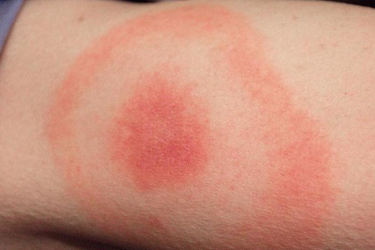ANNAPOLIS, Md. — Susan Green said she believed she contracted Lyme disease more than 20 years ago, but the tests kept coming back negative.
“Meantime, in 2007, I had a seizure and lost my ability to retrieve language,” Green recalled. “My memory was completely wiped out. All of my limbs were twitching and curled up.”
Green said she was bedridden and suffered extreme pain.
“It hit my brain, my heart, and my lungs. No one could figure it out.”
Four tests. Four negative results. Until she visited an infectious disease doctor.
She begged him for antibiotics to treat the disease and he suggested performing a fifth test.
Finally, after more than 20 years, she tested positive.
“He said to me, ‘You are off the charts.’ This was 11 days after my last test, which was negative,” she said. “I got out of bed and started dancing. I was so happy I finally had a diagnosis. Then I learned what it meant and I stopped dancing.”
In the last 20 years, she passed the disease onto her son while she was pregnant and it has affected others in her family, too.
Researchers at Johns Hopkins say Lyme disease has spread rapidly along the East Coast and Midwest. The infectious disease affects more than 300,000 people every year.
Ticks transmit the bacteria to humans. The infection can spread as the body gradually builds up antibodies to fight it. Blood tests can identify those antibodies, but they are not always definitive, like in Green’s case.
On Tuesday, Maryland Gov. Larry Hogan signed a bill into law that requires health care providers warn patients in writing:
“Your health care provider has ordered a laboratory test for the presence of Lyme disease for you. Current laboratory testing for Lyme disease can be problematic and standard laboratory tests often result in false negative and false positive results and, if done too early, you may not have produced enough antibodies to be considered positive because your immune response requires time to develop antibodies. If you are tested for Lyme disease and the results are negative, this does not necessarily mean you do not have Lyme disease. If you continue to experience unexplained symptoms, you should contact your health care provider and inquire about the appropriateness of retesting or initial or additional treatment.”
Green became an advocate for the law and is pleased that it will become standard care during the diagnosis and treatment process for Lyme disease.
The law takes effect in October. Virginia passed a similar law in 2013.







